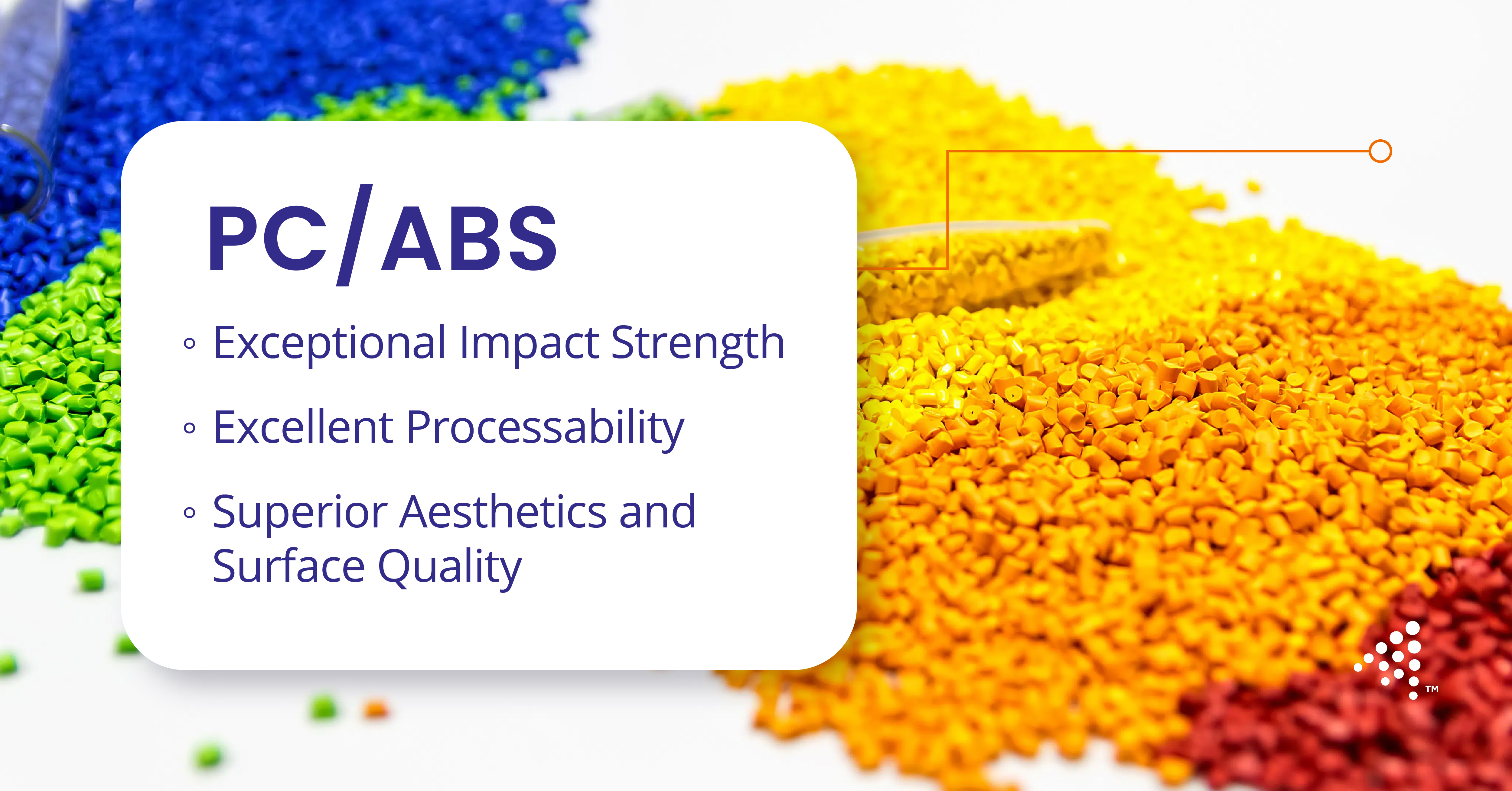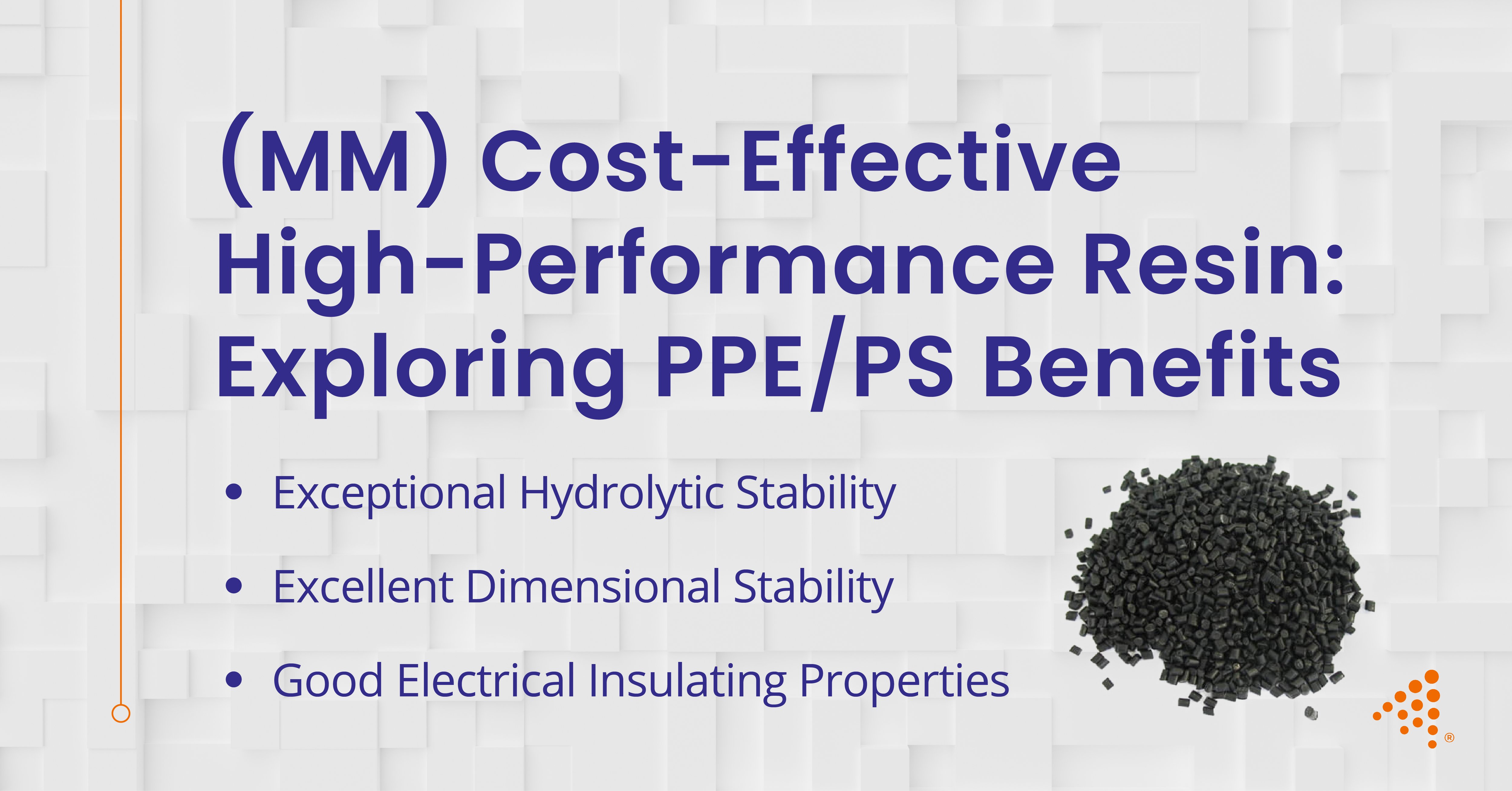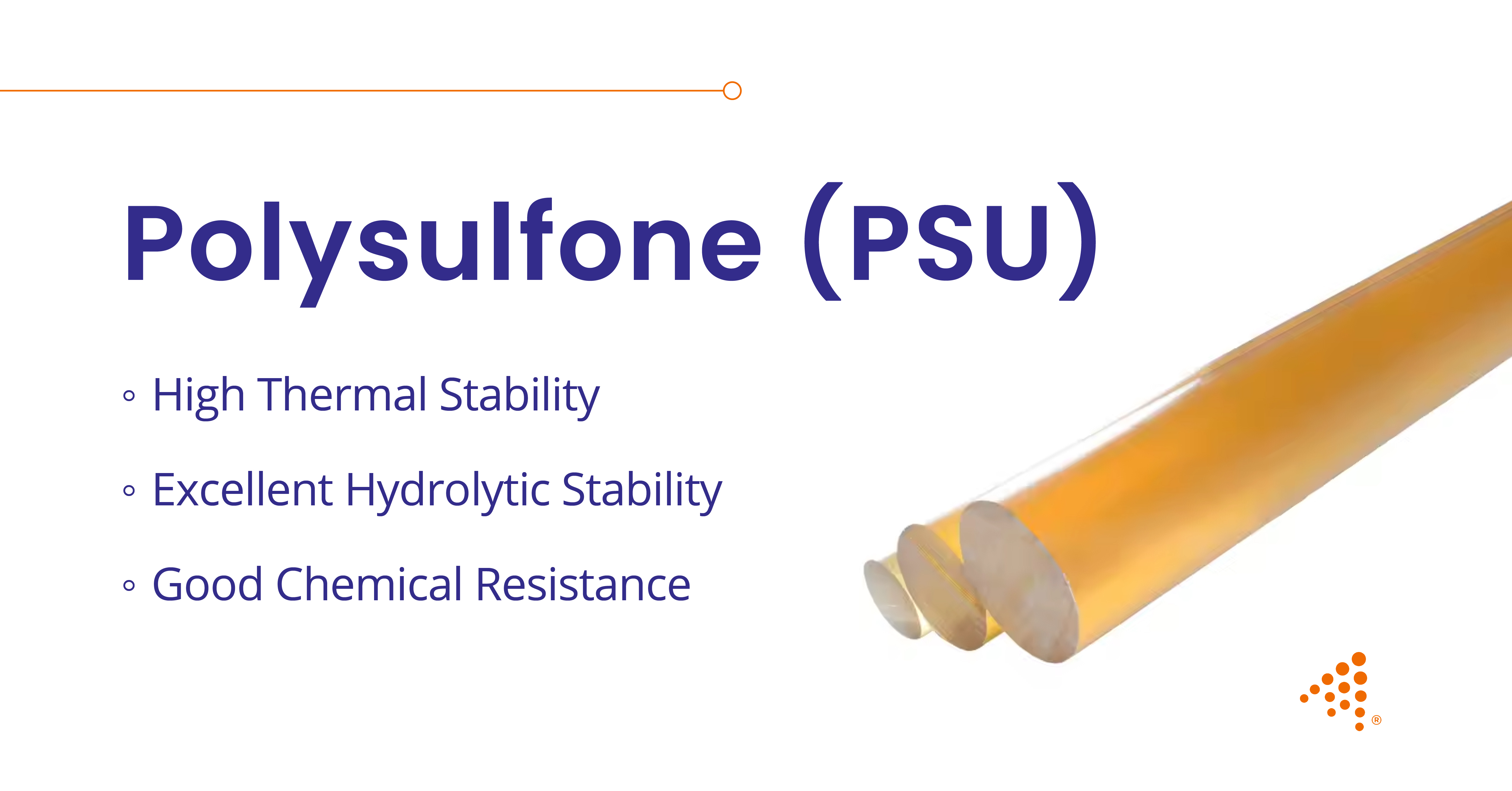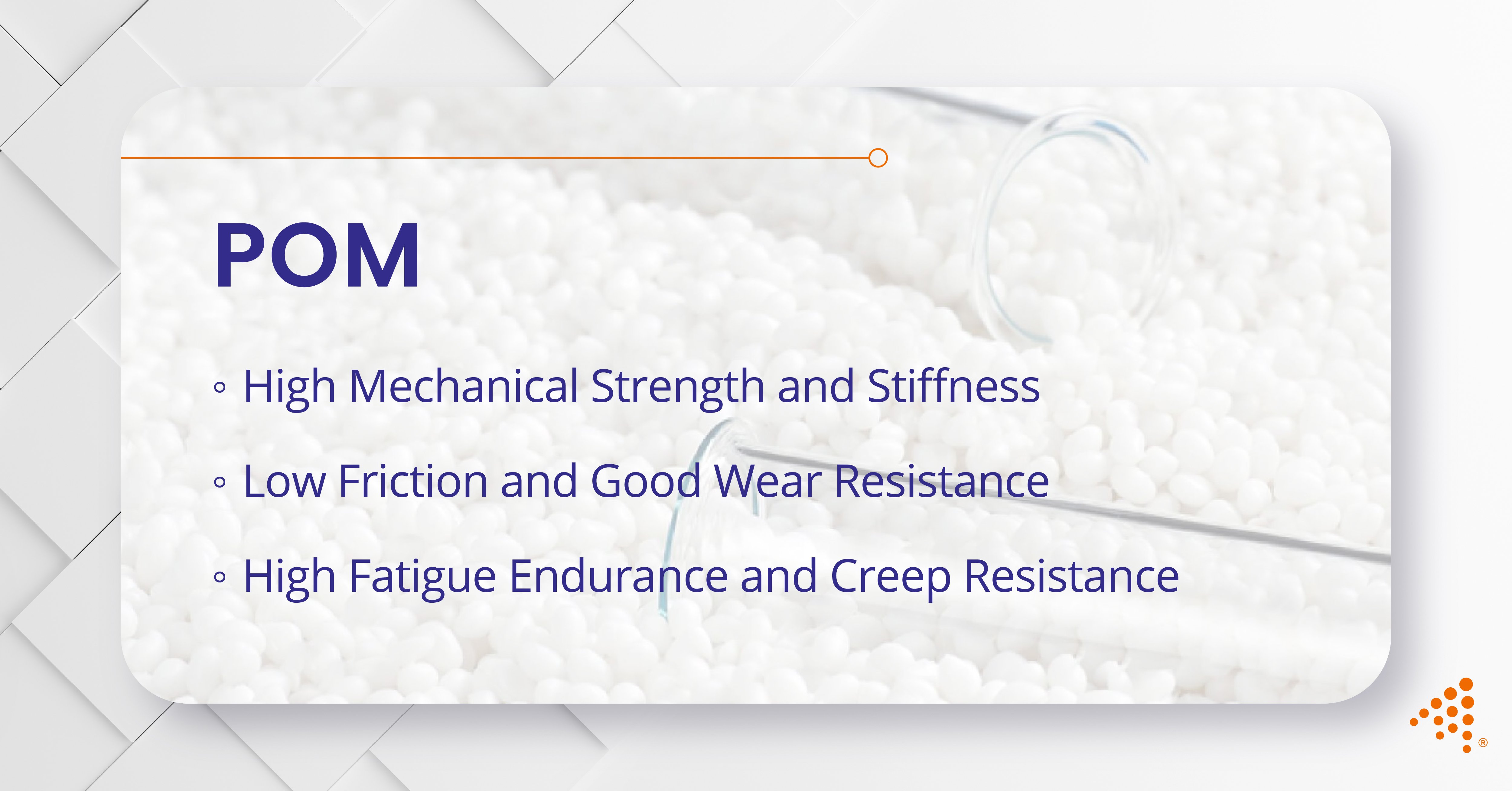Benefits of PPE/PS: High-Performance Resin on Budget
Polyphenylene Ether/Polystyrene (PPE/PS) is an amorphous thermoplastic alloy created by blending polyphenylene ether, also known as polyphenylene...
5 min read
Nick Erickson : Sep 8, 2025 8:48:00 AM

Polycarbonate/Acrylonitrile Butadiene Styrene (PC/ABS) is an engineering thermoplastic alloy, created by blending the two materials. This powerful combination results in a material that harnesses the superior strength and heat resistance of PC with the flexibility and processability of ABS. The resulting blend is one of the most widely used amorphous thermoplastics, celebrated for its unique balance of mechanical properties, aesthetic appeal, and manufacturing versatility, making it a prime candidate for complex components in the automotive, electronics, and medical industries, especially where Design for Injection Molding (DfIM) is essential.
Read More About Guide to Polypropylene (PP): A Versatile Material for Manufacturing
The synergy between PC and ABS gives the alloy remarkable toughness, especially at low temperatures. It provides high impact resistance, significantly reducing the risk of fracture or failure in parts subjected to drops, collisions, or sudden force. This makes it ideal for protective housings and enclosures that need to withstand rough handling, commonly addressed through plastic part design optimization and injection mold design services.
PC/ABS inherits the high heat deflection temperature of polycarbonate, allowing it to maintain its structural integrity and dimensional stability at elevated temperatures. Parts molded from this material can operate reliably in environments with significant heat, such as automotive interiors or electronic device housings, with typical heat deflection temperatures ranging from 200°F to 250°F (93°C to 121°C).
One of the primary benefits of blending PC with ABS is improved melt flow and processability. Compared to pure polycarbonate, PC/ABS is easier to process during injection molding, allowing for the creation of intricate, thin-walled parts with greater precision and faster cycle times. This ease of manufacturing supports rapid prototyping services and cost-effective low-volume injection molding, perfect for companies exploring custom injection molding solutions.
PC/ABS produces parts with a high-quality, glossy surface finish that is readily customizable. The material accepts colors, paints, and metallization with ease, providing designers with significant aesthetic freedom. This makes it a preferred choice for consumer-facing products where appearance is a critical factor and aligns with design for manufacturing services to achieve visual and functional excellence.
The material exhibits low and uniform shrinkage rates, ensuring that molded parts maintain their intended shape and dimensions with high precision. This stability is crucial for complex assemblies where tight tolerances are required, such as in medical device prototypes and injection molding tooling components for electronics.
Need High-Performance Material for Injection Molding?
PC/ABS offers toughness, heat resistance, and dimensional stability for demanding applications across industries.
The unique combination of toughness, heat resistance, and design flexibility makes PC/ABS a go-to material for a wide variety of demanding uses across multiple sectors.
In the automotive industry, PC/ABS is extensively used for interior and exterior parts. You can find it in dashboards, center consoles, pillar trims, and bumper components. Its ability to withstand impacts, resist heat from sun exposure, and provide a premium finish makes it a perfect fit for creating durable and attractive automotive interiors. PC/ABS also supports insert molding for medical devices and overmolding services, further enhancing performance under stress.
PC/ABS is a cornerstone material for the housings of electronic devices. It is used to manufacture laptop cases, mobile phone bodies, television frames, and printer enclosures. The material provides the necessary protection for the delicate internal components, offers electrical insulation, and can be molded to meet the sleek design requirements of modern electronics—an area where digital manufacturing solutions and plastic injection molding services thrive.
For the healthcare sector, specific medical-grade PC/ABS resins are used to produce housings and enclosures for diagnostic equipment, patient monitoring devices, and handheld instruments. Its durability ensures the device can withstand the rigors of a clinical environment, while its chemical resistance allows for proper cleaning and sterilization with many common disinfectants. These projects typically require DFM for medical devices, FDA-compliant manufacturing, and even ISO 13485 injection molding standards.
The material's good dielectric properties and dimensional stability make it suitable for electrical housings, outlet covers, and connectors. By adding flame retardants, PC/ABS can meet stringent safety standards for flammability, providing a safe and reliable solution for electrical components. Partnering with an ISO-certified manufacturing company helps ensure quality in these critical applications.
From protective helmets and gear to small appliance housings, PC/ABS provides the impact resistance and aesthetic quality needed for consumer products. Its strength ensures user safety, while its ability to be easily colored and finished enhances product appeal. These parts are frequently produced using 3D printed prototypes and additive manufacturing services for faster design validation.
The inherent properties of PC/ABS can be further enhanced through various additives and modifications to meet the specific requirements of a given part.
For uses in electronics and electrical devices, flame retardants are often added to PC/ABS formulations. These additives help the material meet safety regulations, such as UL94, by slowing ignition and preventing the spread of flames. This is critical for ensuring the safety of consumer electronics and electrical housings, and is supported through injection molding quality control protocols.
To increase stiffness and strength, PC/ABS can be reinforced with fillers like glass fiber or mineral fillers. Glass-filled PC/ABS offers significantly improved modulus and dimensional stability, making it suitable for structural components that must bear loads without deforming, critical for precise tooling solutions and tooling services.
While inherently more stable than ABS alone, PC/ABS can still be susceptible to degradation from long-term exposure to ultraviolet (UV) light. UV stabilizers are incorporated to protect the material from yellowing and embrittlement, preserving its appearance and mechanical properties in outdoor or high-light environments.
PC/ABS is highly receptive to colorants, allowing for a vast spectrum of custom colors. This is essential for branding and product differentiation in consumer electronics and other visually driven markets. Specific colorants can also be chosen for functional purposes, such as light-blocking grades for camera housings, delivered with custom manufacturing services for maximum flexibility.
Read More About The Ultimate Guide to ABS for High-Performance Manufacturing
Despite its many advantages, PC/ABS has certain limitations that designers and engineers should consider.
While generally robust, PC/ABS is susceptible to attack from certain chemicals, including chlorinated solvents, aromatic hydrocarbons, and strong alkalis. Exposure to these substances can cause the material to soften, swell, or crack, limiting its use in environments with harsh chemical exposure.
Without the addition of UV stabilizers, standard grades of PC/ABS can degrade when exposed to prolonged sunlight. This can lead to a loss of impact strength and a yellowing of the surface, making it less suitable for long-term outdoor use unless properly modified.
Like its polycarbonate component, PC/ABS is hygroscopic, meaning it absorbs moisture from the atmosphere. This moisture must be removed by thoroughly drying the resin before processing. Failure to do so can lead to splay, silver streaking, and reduced mechanical properties in the final molded part, addressed via proper secondary manufacturing processes and inspection and quality control in manufacturing.
As a high-performance engineering alloy, PC/ABS is generally more expensive than commodity plastics like standalone ABS or polypropylene. This higher cost must be justified by the performance requirements of the final product, such as the need for high impact strength and heat resistance.
Balancing Strength, Finish, and Manufacturability?
Discover how PC/ABS delivers impact resistance, sleek aesthetics, and reliable performance for complex parts.
Choosing PC/ABS means selecting a material that offers a best-of-both-worlds solution, combining the toughness and heat stability of polycarbonate with the processability and aesthetic qualities of ABS. This synergy makes it an invaluable material for producing robust, attractive, and complex parts. It is the ideal choice for products that demand high impact resistance, such as electronic enclosures and automotive components, while also requiring a superior surface finish. For designers looking to create durable, heat-resistant, and aesthetically pleasing parts through a reliable manufacturing process, PC/ABS provides a versatile and high-performing option, especially when supported by expert design and manufacturing services and tooling company expertise. Contact us to discuss how PC/ABS can elevate your next injection molding project.
You can also view our Material Selection tool.

Polyphenylene Ether/Polystyrene (PPE/PS) is an amorphous thermoplastic alloy created by blending polyphenylene ether, also known as polyphenylene...

Polysulfone (PSU) is a high-performance, semi-transparent thermoplastic known for its exceptional thermal stability, mechanical strength, and...

Polyoxymethylene (POM), commonly known as acetal or polyacetal, is a high-performance engineering thermoplastic celebrated for its impressive...